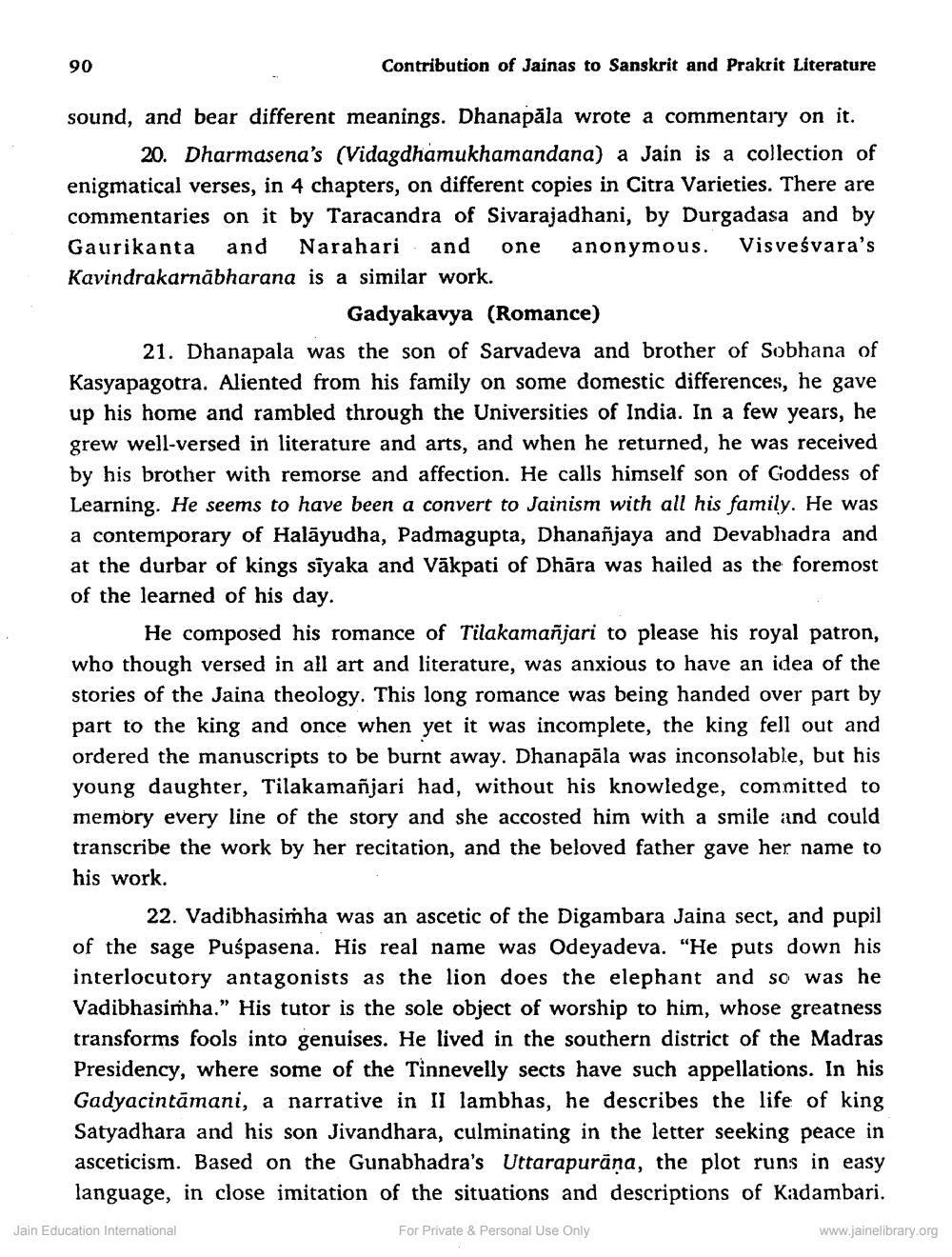________________
90
Contribution of Jainas to Sanskrit and Prakrit Literature
sound, and bear different meanings. Dhanapāla wrote a commentary on it.
20. Dharmasena's (Vidagdhamukhamandana) a Jain is a collection of enigmatical verses, in 4 chapters, on different copies in Citra Varieties. There are commentaries on it by Taracandra of Sivarajadhani, by Durgadasa and by Gaurikanta and Narahari and one anonymous. Visveśvara's Kavindrakarnābharana is a similar work.
Gadyakavya (Romance) 21. Dhanapala was the son of Sarvadeva and brother of Sobhana of Kasyapagotra. Aliented from his family on some domestic differences, he gave up his home and rambled through the Universities of India. In a few years, he grew well-versed in literature and arts, and when he returned, he was received by his brother with remorse and affection. He calls himself son of Goddess of Learning. He seems to have been a convert to Jainism with all his family. He was a contemporary of Halāyudha, Padmagupta, Dhananjaya and Devabhadra and at the durbar of kings siyaka and Vākpati of Dhāra was hailed as the foremost of the learned of his day.
He composed his romance of Tilakamañjari to please his royal patron, who though versed in all art and literature, was anxious to have an idea of the stories of the Jaina theology. This long romance was being handed over part by part to the king and once when yet it was incomplete, the king fell out and ordered the manuscripts to be burnt away. Dhanapāla was inconsolable, but his young daughter, Tilakamañjari had, without his knowledge, committed to memory every line of the story and she accosted him with a smile and could transcribe the work by her recitation, and the beloved father gave her name to his work.
22. Vadibhasimha was an ascetic of the Digambara Jaina sect, and pupil of the sage Puspasena. His real name was Odeyadeva. "He puts down his interlocutory antagonists as the lion does the elephant and so was he Vadibhasisha." His tutor is the sole object of worship to him, whose greatness transforms fools into genuises. He lived in the southern district of the Madras Presidency, where some of the Tinnevelly sects have such appellations. In his Gadyacintamani, a narrative in II lambhas, he describes the life of king Satyadhara and his son Jivandhara, culminating in the letter seeking peace in asceticism. Based on the Gunabhadra's Uttarapurāna, the plot runs in easy language, in close imitation of the situations and descriptions of Kadambari.
Jain Education International
For Private & Personal Use Only
www.jainelibrary.org




